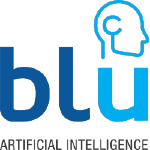
AI Certification: A Guide to Professional Development
AI Skills are the Future of Work AI adoption is [...]
AI Skills are the Future of Work
AI adoption is growing, but most organizations lack the internal expertise needed to scale AI initiatives.
65% of executives say the AI skills gap is slowing down innovation, and only 20% of employees feel confident using AI-powered tools.
What happens when businesses fail to upskill their workforce in AI?
❌ AI projects stall due to lack of skilled professionals.
❌ Companies struggle to implement AI beyond pilot programs.
❌ Employees resist AI adoption due to lack of training & job security concerns.
AI certification ensures employees, executives, and technical teams are equipped with the knowledge to leverage AI effectively. In this guide, Blu outlines how businesses can implement AI certification programs to drive innovation, improve AI adoption, and close the AI skills gap.
The 3 Key AI Certification Paths
1️⃣ AI Literacy & Business Strategy Certification
✅ Key Question: Do executives and business leaders understand AI’s role in strategy?
The Challenge: Many decision-makers lack foundational AI knowledge, making it difficult to:
- Align AI investments with business goals & KPIs.
- Assess AI risks, ethics, and compliance concerns.
- Lead AI adoption initiatives across their organization.
Best Practices for AI Business Certification:
- Train executives on AI strategy, governance, and risk management.
- Educate managers on how to integrate AI into workflows & decision-making.
- Certify leaders in AI adoption frameworks for digital transformation.
Blu’s Approach: We offer executive AI training programs that provide leadership teams with certifications in AI strategy & governance.
2️⃣ AI & Data Science Certification for Technical Teams
✅ Key Question: Do your IT & data science teams have the skills to develop and deploy AI?
The Challenge: AI adoption requires specialized knowledge in data science, machine learning, and AI governance, but many IT teams:
❌ Lack hands-on AI/ML training.
❌ Struggle to integrate AI into cloud-based systems.
❌ Have no formal certification in AI security & compliance.
Best Practices for AI Technical Certification:
- Provide certification in AI model development & deployment.
- Train IT teams in AI security & compliance best practices.
- Offer hands-on courses in AI cloud platforms (AWS, Azure, GCP).
Blu’s Approach: We offer advanced AI certification programs for technical teams, covering ML engineering, AI security, and AI cloud deployment.
3️⃣ AI Compliance & Ethics Certification
✅ Key Question: Is your AI deployment compliant with global regulations?
The Challenge: AI compliance is complex, and most organizations struggle to:
- Align AI with GDPR, CCPA, and AI Act regulations.
- Build AI governance frameworks to ensure ethical AI usage.
- Train employees on AI bias mitigation & explain ability standards.
Best Practices for AI Compliance Certification:
- Train employees on AI fairness, bias detection, and ethical considerations.
- Certify compliance officers in AI regulatory frameworks & legal risks.
- Provide courses on AI accountability & transparency best practices.
🔹 Blu’s Approach: We provide AI compliance certification programs that help businesses navigate AI regulations & reduce risk exposure.
A Step-By-Step Framework for AI Certification Implementation
🔵 Step 1: Assess Your Organization’s AI Skills Gap
✔ Identify which teams need AI training & certification.
✔ Map AI skill requirements to business goals & AI initiatives.
🔵 Step 2: Develop AI Certification Pathways
✔ Provide AI literacy programs for executives & managers.
✔ Offer technical AI certification for IT & data science teams.
🔵 Step 3: Implement Hands-On AI Learning Initiatives
✔ Use AI case studies & real-world projects in training.
✔ Encourage employees to apply AI concepts in their daily roles.
🔵 Step 4: Ensure Continuous AI Learning & Certification Renewal
✔ Provide ongoing AI education & re-certification opportunities.
✔ Keep AI training programs updated with emerging AI trends & regulations.
🔵 Step 5: Measure AI Certification Impact & Workforce Readiness
✔ Track AI adoption rates & skill improvements across teams.
✔ Adjust AI training based on employee engagement & industry trends.
Final Thoughts: AI Certification is Essential for AI Adoption
AI transformation requires a skilled workforce. Companies that invest in AI certification programs will:
✅ Improve AI adoption & workforce confidence in AI-driven environments.
✅ Reduce compliance risks by ensuring teams understand AI governance.
✅ Build internal AI expertise instead of relying on external vendors.
At Blu, we provide custom AI certification programs, ensuring businesses are equipped with AI-literate leaders, technical AI experts, and compliance-ready teams.
Want to implement AI certification in your organization? Let’s talk.
Share this article
Follow us
A quick overview of the topics covered in this article.
Latest articles
April 29, 2025
April 22, 2025
April 9, 2025


